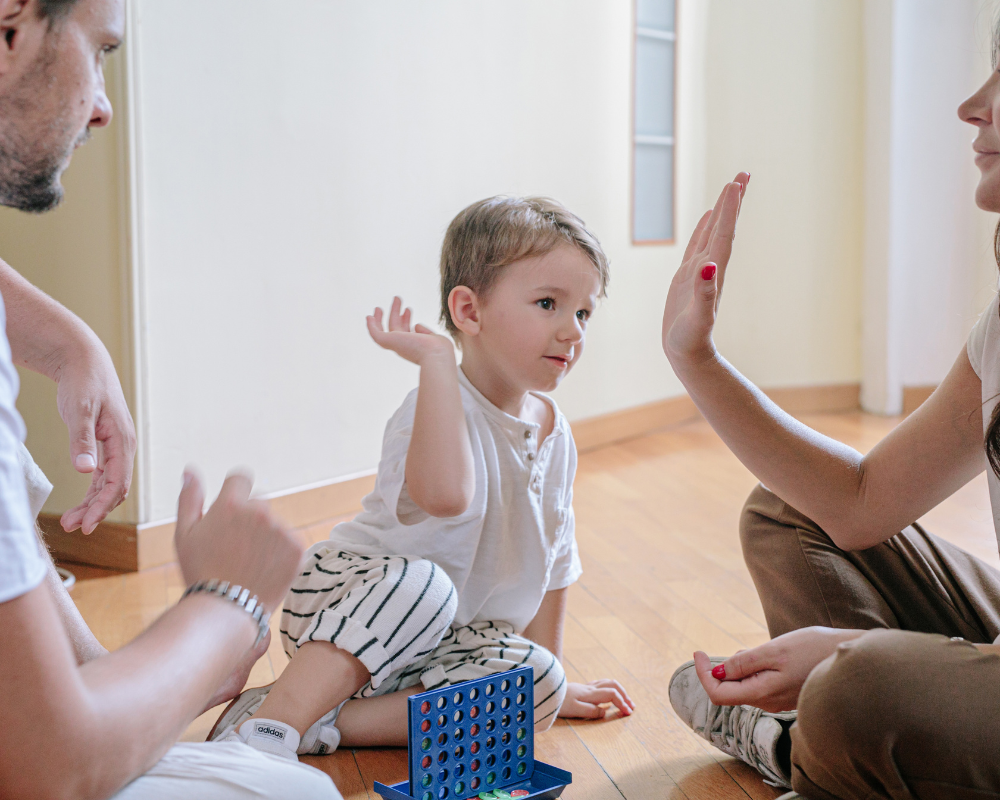4 Parenting Styles and Their Effects on a Child’s Development
According to child psychologists, two aspects of parenting can significantly influence child development: emotion and behavior control and warmth.
The control aspect describes how parents react to their children and which methods they use to guide them. On the other hand, the warmth aspect involves the level of affection parents give their children.
Learning about the different combinations of high or low control and warmth in these parenting styles could benefit current and future parents and their children. With that said, let’s delve into the 4 different parenting styles.
1. Authoritative Parenting
Authoritative parenting is characterized by high levels of both control and warmth. These parents set strict rules and consequences but do not ignore their child’s feelings. They are warm, nurturing, and encouraging, willing to listen to their children and consider their point of view. However, they also make it clear that adults are in charge here. With this approach, they have control over their children, but not in an overbearing way.
This parenting style is often considered the best because it strikes a perfect balance of rules and affection. Children raised by authoritative parents are usually happy, confident, respectful, and successful. They rarely show signs of problematic behavior, such as addiction, alcoholism, or issues with the law. Their parents’ control over them ensured they learned good behavior, and since they received so much love growing up, they can love and fulfill themselves and have stable and secure relationships with others.
2. Authoritarian Parenting
It sounds similar to authoritative parenting, but do not confuse the two. Authoritarian parents are also high on control, but their parenting lacks warmth and emotion. These parents believe children should follow the rules without exception. They are strict and believe in punishment and discipline while enforcing their laws. They don’t care about their children’s emotions; negotiation is not an option in their house.
When dealing with their children, they may seem cold and distant and sometimes can even get hostile and aggressive. When their children grow up, they obey, respect authority, and follow the rules. However, because their opinions were never heard or valued, they have problems with self-esteem. It’s hard for them to communicate their wants and needs with confidence, which makes them prone to depression or anxiety disorders.
3. Permissive Parenting
Kids usually like this parenting style the most because these parents show little control but lots of warmth. They often say that “kids will be kids” and are quite forgiving when their kids make mistakes. Permissive parents might sometimes act more like friends than parents. They enjoy talking with their children, joking around, and rarely putting their foot down.
However, no matter how much their kids like this treatment, the permissiveness comes with a price. Children raised this way often have low self-control, consideration for others, and achievement motivation. They are also more likely to experiment with drugs or alcohol. Additionally, they might struggle academically and have low motivation for higher education.
4. Uninvolved Parenting
Unfortunately, some parents don’t really care about warmth or control. These uninvolved parents barely ever show interest in their children. They don’t ask about their needs, schoolwork, or friends. They let their kids do whatever they want while expecting them to care for themselves too. They can be outright neglectful, cold, and rejecting when their kids seek their help.
Uninvolved parenting also has negative effects on children. They don’t perform well in school, don’t have fulfilling friendships, and have high levels of depression, anxiety, and drug use by the time they’re teenagers. They are also likely to struggle with their self-esteem.
Reflecting on Parenting Styles
If you’re not a parent, what parenting style did your parents use while raising you, and what effects did it have on you? If you are a parent, in which category do you feel you fit in?
If you feel like there’s room for improvement, good job on taking the first step. With lots of learning, dedication, and willingness, you can achieve that perfect balance and become an authoritative parent, raising a happy, protected, and confident child.


